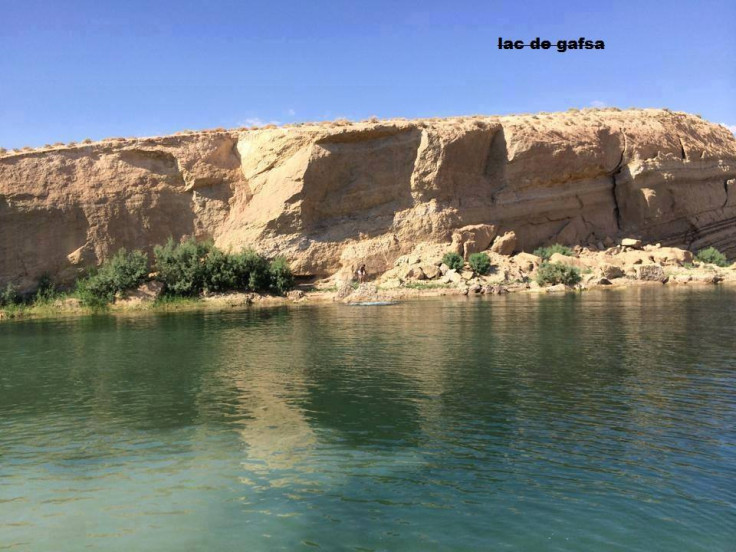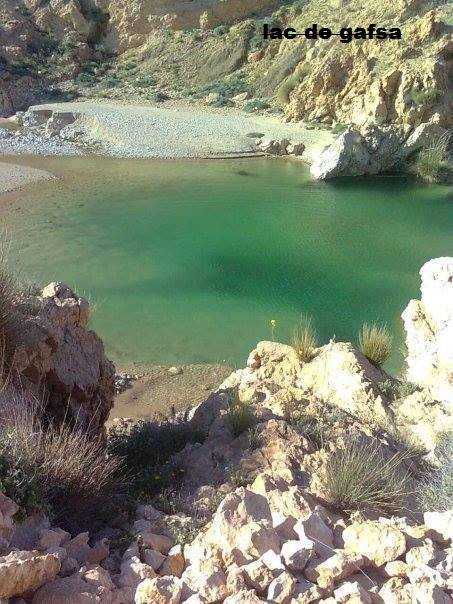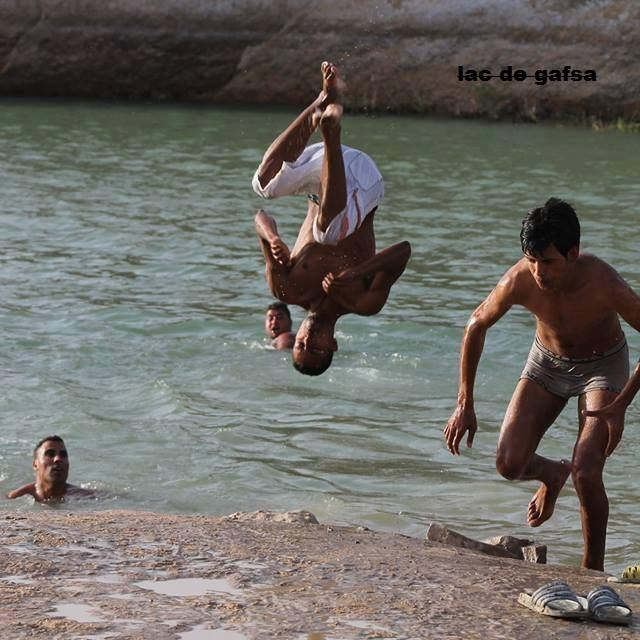Gafsa Beach: Fears of Phosphate Poisoning as Hundreds Swim in Tunisian Oasis' Green Waters

Despite official warnings that the Gafsa Beach lake is dangerous and unfit for swimming, hundreds of people have flocked to the vast expanse of water to cool off from the heatwave in Tunisia.
Hatef Ouigi, from the Regional Directorate of Civil Protection in Gafsa, said the warning was issued as a preventive measure. His team need to carry out checks on the quality of water and depending on the results, take precautions to safeguard the public.
Gafsa became the centre of the country's mining industry after phosphate was discovered in the southern Tunisian region in 1886. Tunisia is now the world's fifth largest exporter of phosphate.

Phosphate mining releases selenium, a non-metal element that is toxic in large quantities, into streams and then seeps into soils and plants.
Selenium toxicity is known to affect wildlife. It can cause lethal deformities in birds and fish, such as missing eyes and feet, deformed beaks, legs, wings and brains.
In humans, symptoms of selenosis (selenium poisoning) include a garlic odour on the breath, gastrointestinal disorders, hair loss and neurological damage. Extreme cases of selenosis can result in cirrhosis of the liver, pulmonary oedema and death.
Mehdi Bilel spotted the lake in the desert canyon, which is 25km from the city of Gafsa.
"After several long hours on the road without a break, I honestly thought I was hallucinating," he told journalists. "I don't know much about science and thought it was magic, something supernatural."
Shepherds discovered the lake, thought to be up to 18 metres deep and covering one hectare, three weeks ago. Local geologists suspect seismic activity may have ruptured the rock above the water table sending the liquid to the surface.
Experts have warned that if the lake has formed because of a rupture in the water table, water could begin to flow back into the cracks, dragging swimmers to the bottom.
Other theories have suggested the canyon is simply a large collection of rainwater.
Bathers have been posting photographs on the Lac de Gafsa Facebook page.

"There's no security, no lifeguards and civil protection people only turned up in the first few days," journalist Lakhdar Souid told Tunisia Daily.
Bref j'ai visité "Gafsa Beach"! pic.twitter.com/W7AoxNtl8k
— Moez Benja™ (@moezrdf) July 30, 2014© Copyright IBTimes 2025. All rights reserved.




















